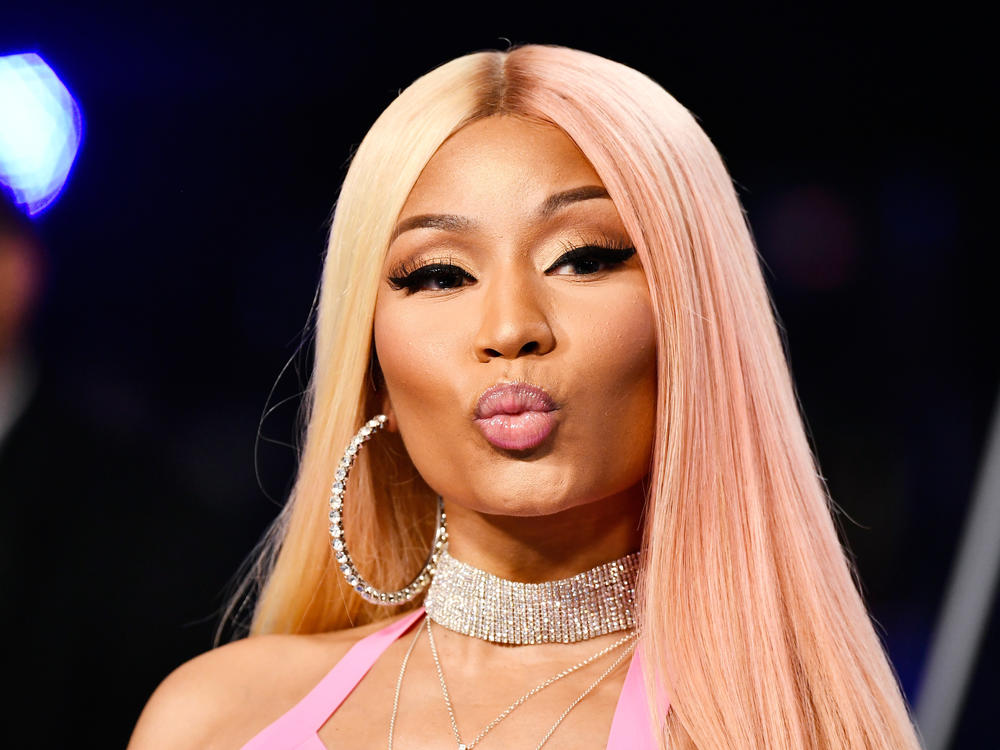Section Branding
Header Content
Nicki Minaj paints hip-hop pink — and changes the game
Primary Content
In the late 2000s, hip-hop was king. But there was a sameness to what was at the top, and there were a WHOLE lotta dudes.
Then came a technicolor blast named Nicki Minaj.
On Morning Edition, culture critic Kiana Fitzgerald looks back at some of the game-changing moments in hip-hop. One of her choices: Nicki Minaj's debut studio album Pink Friday.
After leaving Trinidad and Tobago for New York, Nicki Minaj earned an instant reputation for outlandish rhymes on early mixtapes and feature appearances on tracks by Usher, Mariah Carey and Ludacris. But it was her star-making turn on Kanye West's 2010 single "Monster" that "took Nicki from 0 to 100," as Kiana Fitzgerald puts it.
"She just said: I'm not doing anything normal. I'm going to do what I want to do." Fitzgerald points out that a standard verse for a featured performer lasts around 8-16 bars. "Nicki blew past that in such a major way. For over 30 bars, she was rapping about everything from Willy Wonka to Child's Play."
"This kind of creative fearlessness is what prepared Nicki for the next step, which was the creation and the release of Pink Friday."
Minaj's first studio album was released just a month after Ye's "Monster." And Fitzgerald emphasizes, "It is not an exaggeration to say that Pink Friday changed hip-hop at its very core."
Minaj incorporated light-hearted pop and R&B into her flow in ways that were almost forbidden at the time, and "it became this very fun, bubblegum, neon pink, experimental playground."
Nicki Minaj also brought a shape-shifting quality to her vocals. "If you listen to Pink Friday from front to back, you won't hear her use her voice in the same way," says Fitzgerald. "She may want to sing and then rap immediately after, or she may want to make strange noises that don't really make sense, but then when you hear it in totality, it's like, Oh, I'm glad she did this! That makes a lot of sense."
Kiana Fitzgerald hears Minaj's influence all over modern hip-hop. Artists like Megan Thee Stallion and Ice Spice show their individuality and range of emotion with confidence.
"Nicki Minaj knew that not everybody would immediately understand her, and she still swung for the fences. Because she knew that — in being herself 1,000% — she would have an effect on future artists and give them the ability to do what they want to do without being side eyed or being skipped in a playlist."
Copyright 2023 NPR. To see more, visit https://www.npr.org.

